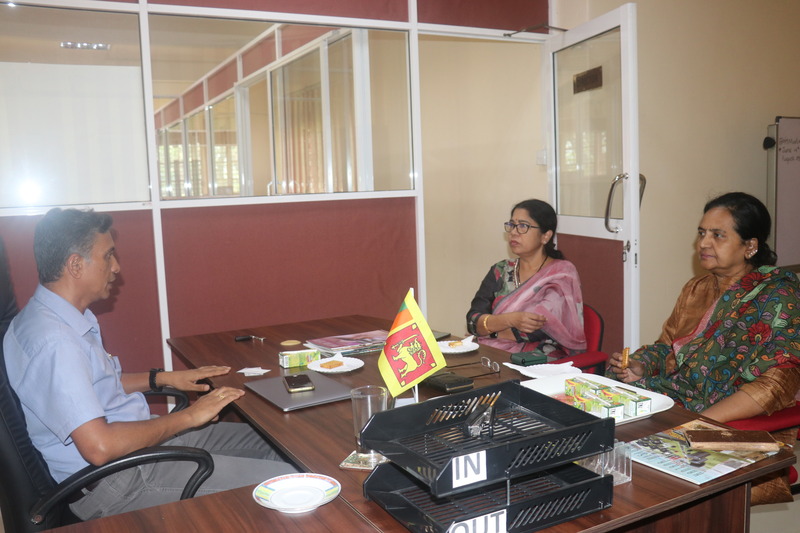InRO News
Meeting with the Delegates from the Women’s University, India
| 06th March 2025
The meeting commenced with a formal introduction by Prof. P. Vijaya Lakshmi, the Dean of the Centre for International Relations of Sri Padmavati Mahila Visvavidyalayam (Women’s University), India, with the Director of the Research Cell and the Registrar of the University, and Prof. S.P.K. Malaviarachchi, the Director of the International Relations Office, University of Peradeniya, and the Project Manager, Computer Programmer, and Logistic Support Officer of InRO also joined the meeting. This was followed by an overview of the represented institutions. The discussion emphasized the diverse academic programs offered across multiple faculties, including social sciences, sciences, pharmacy, and management. Special attention was given to the incubation centers that actively support business and technology startups, creating an environment conducive to innovation and entrepreneurship.
The meeting also acknowledged the institution's extensive collaborations with universities in Thailand, Indonesia, the USA, and Oxford. A notable long-term research initiative in the field of geology, ongoing for 15 years, was also discussed by the Indian delegates.
The discussion then shifted to student mobility programs, with a focus on a collaboration with Malaysian universities that facilitates three-month internships. It was noted that students benefit from access to well-equipped laboratories and research facilities through existing Memorandums of Understanding (MoUs). Additionally, a cultural exchange program was highlighted, which provides international students with local transportation, accommodation, and meals. Furthermore, the institution’s partnership with Japanese universities offers a double-degree program, enabling students to complete three years of study locally before spending an additional year abroad.
Internship opportunities were another major point of discussion. It was noted that internships are mandatory for students in the Science and Social Science faculties, with some disciplines requiring multiple placements. Biotechnology students have already taken part in internships under the Sakura Science Exchange Program, and efforts are underway to establish international internship programs with institutions in Taiwan and China as per the discussion.
The financial constraints affecting student mobility and research collaborations were acknowledged, particularly in light of recent economic challenges. Despite these limitations, efforts are being made to secure external funding through international grants and partnerships. Some financial aid and scholarships are available for student exchanges, particularly for those involved in specific research collaborations.
The discussion also covered entrepreneurship and business linkages, leading to an invitation to visit the Business Linkage Unit. Attendees exchanged contact details to facilitate future collaborations. The meeting concluded with expressions of appreciation for the discussions and a commitment to continue engagements through official channels.



